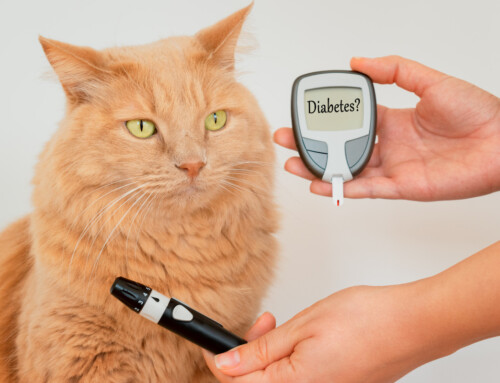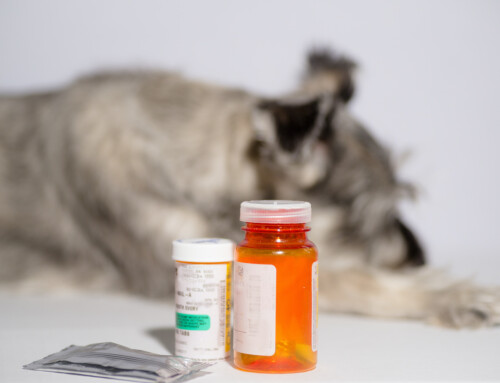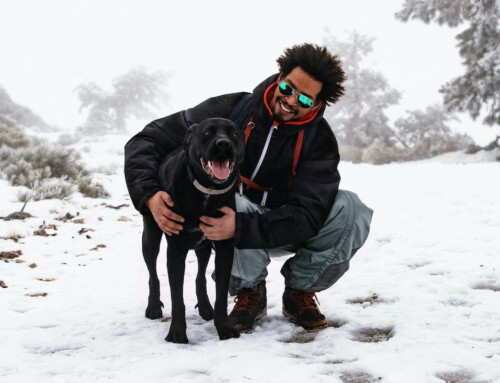August is National Immunization Awareness Month and “Experts agree that widespread use of vaccinations within the last century has prevented death and disease in millions of animals. Vaccinations protect your pet from highly contagious and deadly diseases and improve your pet’s overall quality of life,” states the American Veterinary Medical Foundation.
Reasons to Vaccinate Your Pet
Here are the main reasons to vaccinate your pet:
- Prevent many illnesses that negatively affect pets.
- One of the easiest ways to help him live a long, healthy life.
- Help avoid costly treatments for preventable diseases.
- Prevent the spread of diseases passed from animal to animal and from animal to human.
- Protect from wildlife found in wildlife such as rabies and distemper.
- Conform to local and state ordinances that require vaccinations
Vaccination Records
It is a good idea to keep all of your vaccination records in one place typically with your local veterinarian to monitor your pet’s health and to stay current with necessary vaccinations.
Core and Non-Core Vaccinations
Did you know that there are two categories of vaccinations — core and Non-core. Here is a description of the two.
Core Vaccines
The American Society for the Prevention of Cruelty to Animals explains that “core vaccines are considered vital to all pets based on risk of exposure, severity of disease or transmissibility to humans.
For Dogs: Vaccines for canine parvovirus, distemper, canine hepatitis and rabies are considered core vaccines.
For Cats: Vaccines for panleukopenia (feline distemper), feline calicivirus, feline herpesvirus type I (rhinotracheitis) and rabies are considered core vaccines”.
Non-Core Vaccines
Depending on your animal’s exposure risk, non-core vaccines are given. These include vaccines against Bordetella bronchiseptica, Borrelia burgdorferi and Leptospira bacteria.
Non-core vaccines are given depending on the cat’s lifestyle; these include vaccines for feline leukemia virus, Bordetella, Chlamydophila felis and feline immunodeficiency virus.
As your veterinarian and they can help you determine what vaccines are best for your pet.
WebMD has a convenient schedule shown below for your animals of the core and non-core vaccines to use as a guideline along with your veterinarian’s recommendations and knowledge.
Vaccination Schedule for Dogs: Core and Non-core Vaccines
Source: WebMD.com for Dogs
| Dog Vaccine | Initial Puppy Vaccination (at or under 16 weeks) | Initial Adult Dog Vaccination (over 16 weeks) | Booster Recommendation | Comments |
| Rabies 1-year | Can be administered in one dose, as early as 3 months of age. States regulate the age at which it is first administered. | Single dose | Annual boosters are required. | Core dog vaccine. Rabies is 100% fatal to dogs, with no treatment available. Prevention is key. |
| Rabies 3-year | Can be administered as one dose, as early as 3 months of age. States regulate the age at which it is first administered. | Single dose | A second vaccination is recommended after 1 year, then boosters every 3 years. | Core dog vaccine. |
| Distemper | At least 3 doses, given between 6 and 16 weeks of age | 2 doses, given 3-4 weeks apart | Puppies need a booster 1 year after completing their initial series, then all dogs need a booster every 3 years or more often. | Core dog vaccine. Caused by an airborne virus, distemper is a severe disease that, among other problems, may cause permanent brain damage. |
| Parvovirus | At least 3 doses, given between 6 and 16 weeks of age | 2 doses, 3-4 weeks apart | Puppies need a booster 1 year after completing the initial series, then all dogs need a booster every 3 years or more often. | Core dog vaccine. Canine “parvo” is contagious, and can cause severe vomiting and bloody diarrhea. Parvo is usually fatal if untreated. |
| Adenovirus, type 1 (CAV-1, canine hepatitis) | At least 3 doses, between 6 and 16 weeks of age | 2 doses, 3-4 weeks apart | Puppies need a booster 1 year after completing the initial series, then all dogs need a booster every 3 years or more often. | Core dog vaccine. Spread via infected urine and feces; canine hepatitis can lead to severe liver damage, and death. |
| Adenovirus, type 2 (CAV-2, kennel cough) | At least 3 doses, between 6 and 16 weeks of age | 2 doses, 3-4 weeks apart | Puppies need a booster 1 year after completing the initial series, then all dogs need a booster every 3 years or more often. | Core dog vaccine. Spread via coughs and sneezes. |
| Parainfluenza | Administered at 6-8 weeks of age, then every 3-4 weeks until 12-14 weeks old | 1 dose | A booster may be necessary after 1 year, depending on manufacturer recommendations; revaccination every 3 years is considered protective. | Non-core dog vaccine. Parainfluenza infection (not the same as canine influenza) results in cough, fever. It may be associated with Bordetella infection. |
| Bordetella bronchiseptica (kennel cough) | Depends on the vaccine type; 2 doses are usually needed for protection | 1 dose of the intranasal or oral product, or 2 doses of the injected product
|
Annual or 6-month boosters may be recommended for dogs in high-risk environments. | Non-core dog vaccine. Not usually a serious condition, although it can be dangerous in young puppies. It is usually seen after activities like boarding or showing. |
| Lyme disease | 1 dose, administered as early as 9 weeks, with a second dose 2-4 weeks later | 2 doses, 2-4 weeks apart | May be needed annually, prior to the start of tick season | Non-core dog vaccine. Generally recommended only for dogs with a high risk for exposure to Lyme disease-carrying ticks. |
| Leptospirosis | First dose as early as 8 weeks, with a second dose 2-4 weeks later | 2 doses, 2-4 weeks apart | At least once yearly for dogs in high-risk areas | Non-core dog vaccine. Vaccination is generally restricted to established risk areas. Exposure to rodents and standing water can lead to a leptospirosis infection. |
| Canine influenza | First dose as early as 6-8 weeks; second dose 2-4 weeks later | 2 doses, 2-4 weeks apart | Yearly | Non-core dog vaccine. Similar to bordetella. |
Vaccination Schedule for Cats: Core and Non-core Vaccines
Source: WebMD.com for Cats
| Cat Vaccine | Initial Kitten Vaccination (at or under 16 weeks) | Initial Adult Cat Vaccination (over 16 weeks) | Booster Recommendation | Comments |
| Rabies | Single dose as early as 8 weeks of age, depending on the product. Revaccinate 1 year later | 2 doses, 12 months apart | Required annually or every 3 years, depending on vaccine used. State regulations may determine the frequency and type of booster required. | Core cat vaccine. Rabies is 100% fatal to cats, with no treatment available. Prevention is key. |
| Feline Distemper (Panleukopenia) | As early as 6 weeks, then every 3-4 weeks until 16 weeks of age | 2 doses, 3-4 weeks apart | 1 dose is given a year after the last dose of the initial series, then every 3 years. | Core cat vaccine. Feline distemper is a severe contagious disease that most commonly strikes kittens and can cause death. |
| Feline Herpesvirus | As early as 6 weeks, then every 3-4 weeks until 16 weeks of age | 2 doses, 3-4 weeks apart | 1 dose is given a year after the last dose of the initial series, then every 3 years. | Core cat vaccine. Feline herpesvirus causes feline viral rhinotracheitis (FVR), a very contagious upper respiratory condition. |
| Calicivirus | As early as 6 weeks, then every 3-4 weeks until 16 weeks of age | 2 doses, 3-4 weeks apart | 1 dose is given a year after the last dose of the initial series, then every 3 years. | Core cat vaccine. A very contagious upper respiratory condition that can cause joint pain, oral ulcerations, fever, and anorexia. |
| Feline Leukemia Virus (FeLV) | As early as 8 weeks, then 3-4 weeks later | 2 doses, 3-4 weeks apart | Every 2 years for cats at low risk; every year for those at higher risk | Non-core cat vaccine. Should test FeLV negative first. Transmitted via cat-to-cat contact. Can cause cancer, immunosuppressant |
| Bordetella | As early as 4 weeks | 2 doses,1 year apart | Annually | Non-core cat vaccine. A contagious upper respiratory condition. |
Let a trained local Vet help you navigate the world of good health and vaccinations for your beloved furry family member.
MainStreet Veterinarians practices both conventional as well as alternative animal healthcare from our friendly office in Stone Mountain, GA. Offering mainly conventional veterinary medicine and surgery to also offering a wide array of alternative and holistic treatments to the veterinary community as well. Call us today to make an appointment with your beloved pet at 770-498-4620 or send us an email.








